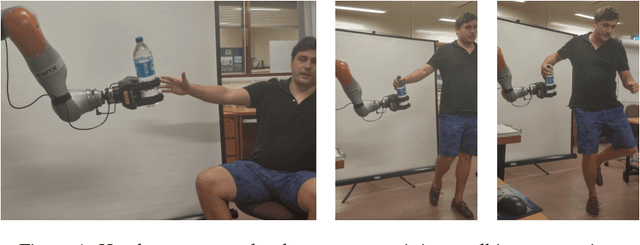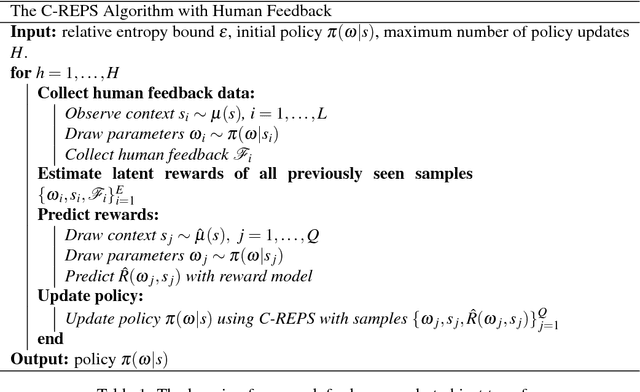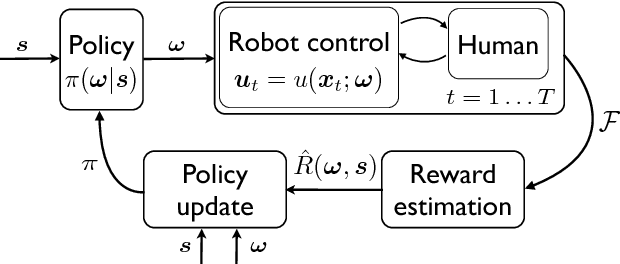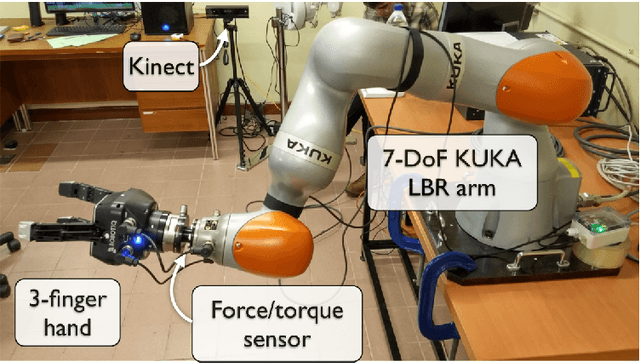Learning Dynamic Robot-to-Human Object Handover from Human Feedback
Paper and Code
Mar 21, 2016



Object handover is a basic, but essential capability for robots interacting with humans in many applications, e.g., caring for the elderly and assisting workers in manufacturing workshops. It appears deceptively simple, as humans perform object handover almost flawlessly. The success of humans, however, belies the complexity of object handover as collaborative physical interaction between two agents with limited communication. This paper presents a learning algorithm for dynamic object handover, for example, when a robot hands over water bottles to marathon runners passing by the water station. We formulate the problem as contextual policy search, in which the robot learns object handover by interacting with the human. A key challenge here is to learn the latent reward of the handover task under noisy human feedback. Preliminary experiments show that the robot learns to hand over a water bottle naturally and that it adapts to the dynamics of human motion. One challenge for the future is to combine the model-free learning algorithm with a model-based planning approach and enable the robot to adapt over human preferences and object characteristics, such as shape, weight, and surface texture.
 Add to Chrome
Add to Chrome Add to Firefox
Add to Firefox Add to Edge
Add to Edge